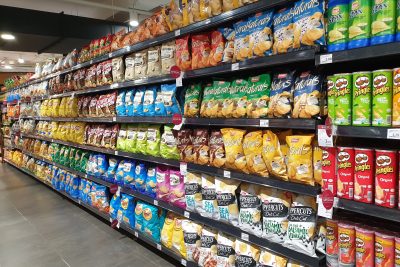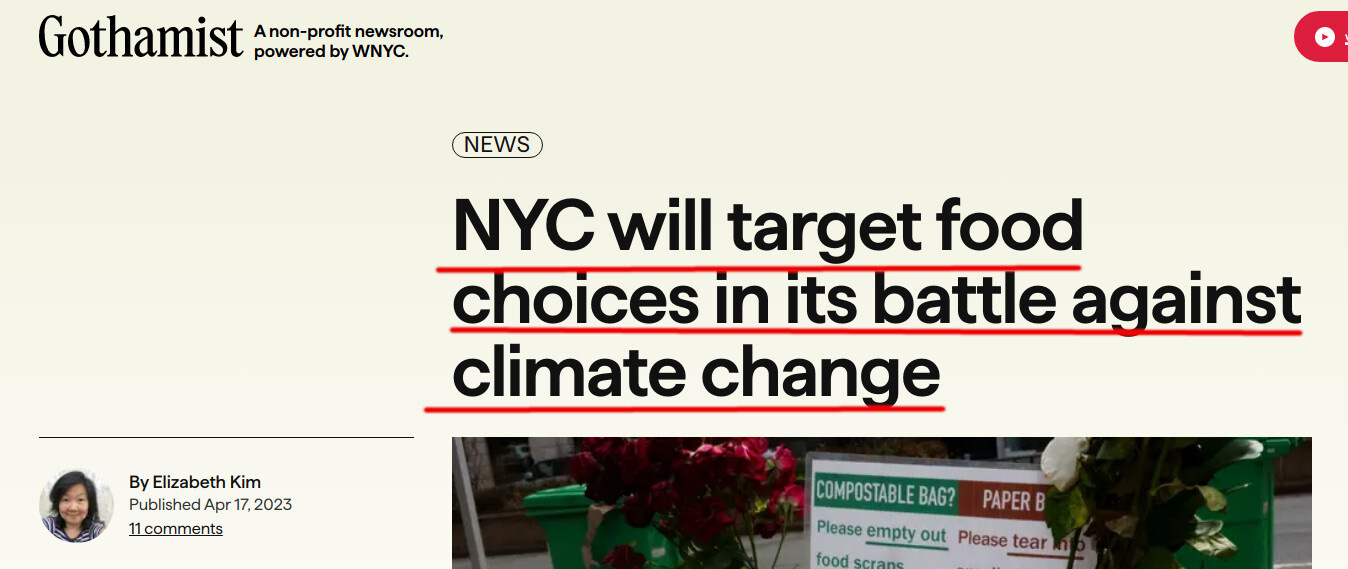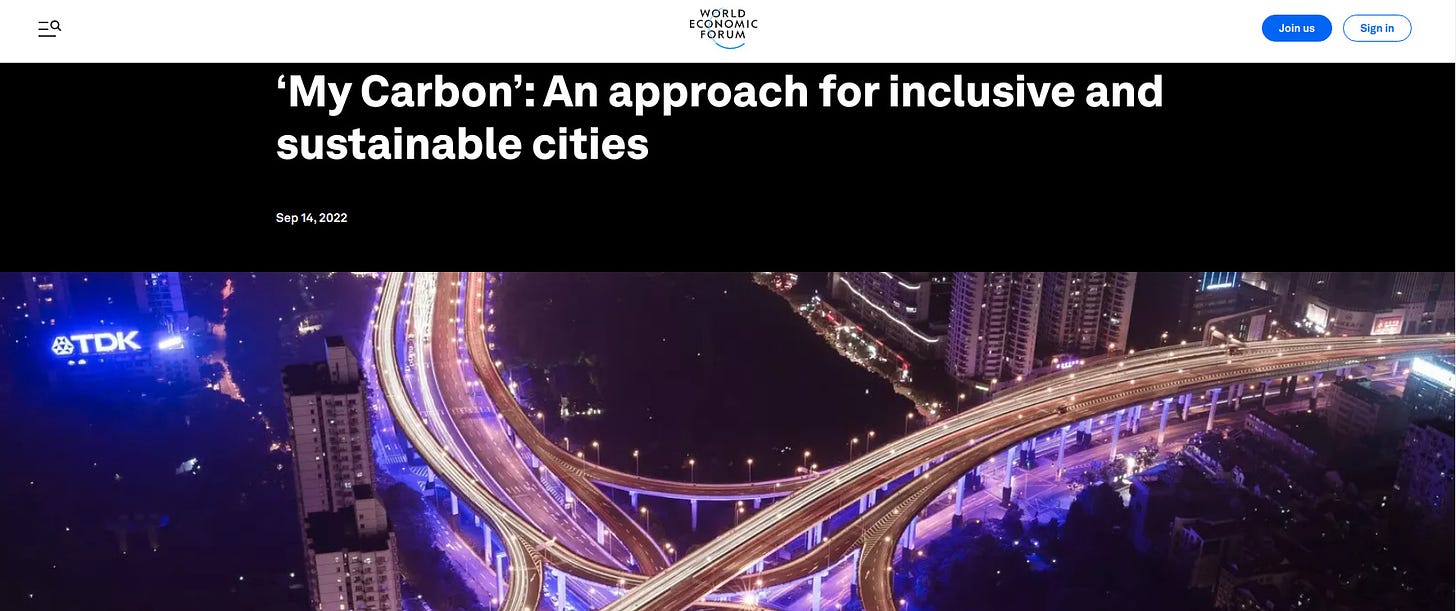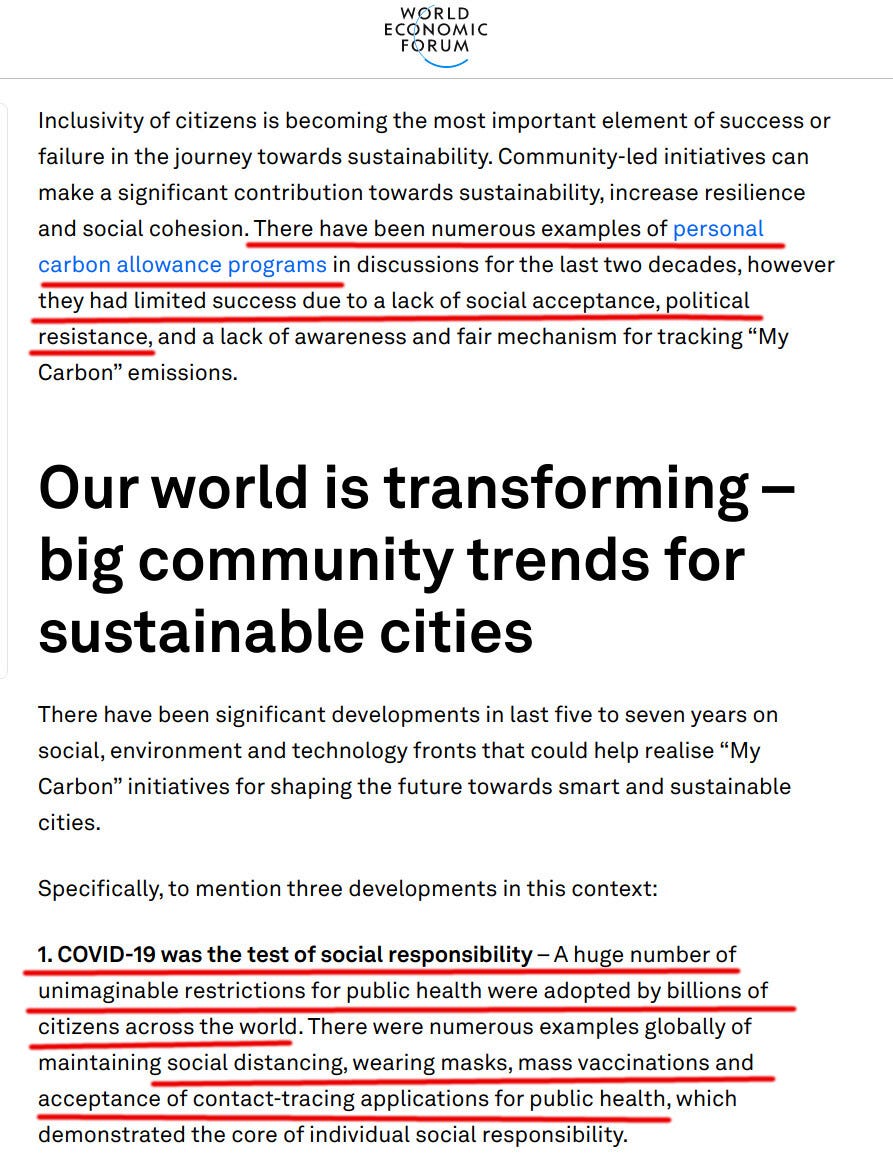New York City to Track Personal Food Choices to Reduce CO2 Emissions
This is needed to fight climate change, NYC mayor says

All Global Research articles can be read in 51 languages by activating the Translate Website button below the author’s name.
To receive Global Research’s Daily Newsletter (selected articles), click here.
Click the share button above to email/forward this article to your friends and colleagues. Follow us on Instagram and Twitter and subscribe to our Telegram Channel. Feel free to repost and share widely Global Research articles.
***
Remember the crazy right-wing conspiracy theory alleging that our food purchases will be tracked to reduce CO2 emissions?
That one is turning out to be true!
Yesterday, New York City announced its plan to track the “food choices” of New Yorkers using credit card data from individual store purchases. According to the mayor, tracking individual food choices is a step towards “reducing the CO2 output” of New Yorkers.

The Adams administration has announced a plan to begin tracking the carbon footprint created by household food consumption as well as a new target for New York City agencies to reduce their food-based emissions by 33% by the year 2023. [Did they mean 2032 – I.C.?]
New York City, in partnership with American Express, a credit card company, will track purchases to calculate New Yorkers’ carbon footprints:
The new plan puts the city on par with London and 13 other cities to incorporate food consumption into its greenhouse gas emission metrics.The effort to examine the environmental effects of eating foods like meat and dairy was first announced about a year ago as part of a collaboration among major cities across the globe.
You would think such a plan would only be made after a conversation with New Yorkers, right? After all, the mayor of New York is supposed to serve New Yorkers, not the other way around.
However, the reality is that there was no consultation and no “conversation” because New York’s mayor Eric Adams is sure that people do not even want to have a “conversation” about interrogating their food choices.
On Monday, Adams acknowledged that interrogating people’s food choices would be difficult. “I don’t know if people are really ready for this conversation,” he said.
The WEF’s “My Carbon” Allowance Plan
Eric Adams, of course, is not serving New Yorkers, whom he did not even consult. He is serving his sponsors, demanding that food and other personal expenditures be tracked to advance climate goals. The World Economic Forum proposed tracking personal CO2 consumption, and CO2 allowances, in its infamous “My Carbon” agenda article.

The WEF explains that tracking individual choices was always met with resistance. Fortunately for the WEF, the Covid pandemic, caused by a mysterious lab-made pathogen, changed this calculation and, according to the WEF, allowed us to extend “pandemic measures” into consumption tracking due to greater social acceptance of the governmental intrusion into our personal lives:

Few cities exhibited more sheep-like adherence to pandemic measures than New York City, so it should not be surprising that “food purchase tracking” is being tried in that particular locale in accordance with the WEF’s instructions.
Tracking of purchases will not be limited to food, of course.
On Meat, Health, and Freedom
This article is intentionally neutral on meat and health. Some of my subscribers are vegans, and some are avid meat eaters. I respect everyone. I was a vegetarian for a whole year, a long time ago. I try to eat less meat nowadays, which still amounts to eating too much, but I am trying. (I ate low-carb for years, but now I want to do something different.)
Rather than framing this issue as a health matter, I urge you to consider it a question of basic fairness: the unelected, supranational, self-appointed masters of the world are trying to track and influence our behavior without even asking for permission or inquiring about our opinion.
We are being assured that this is done for our good. However, these same people benefit financially from well-placed investments in companies growing fake meat comprised of cancer tumor cells.
We are generally taught that conflicts of interest should make us question the intentions of people promoting ideas related to such conflicts.
In the case of Covid-19 or climate change, we are asked to throw such precautions away and put blind faith into mega billionaires benefiting mightily from the pandemic or their climate change investments.
As skeptics and critical thinkers, we should refuse to believe promoters standing to benefit financially from their crazy ideas. Instead, we should demand a close and skeptical look into what is happening behind the curtain.
I am sure, however, that instead of skepticism, we will get more fake fact checks, denials, and gaslighting.
What do you think?
*
Note to readers: Please click the share button above. Follow us on Instagram and Twitter and subscribe to our Telegram Channel. Feel free to repost and share widely Global Research articles.

